If you need to use a spanner on items like taps, first over the item with an old cloth. This will prevent scratches being caused by the spanner.
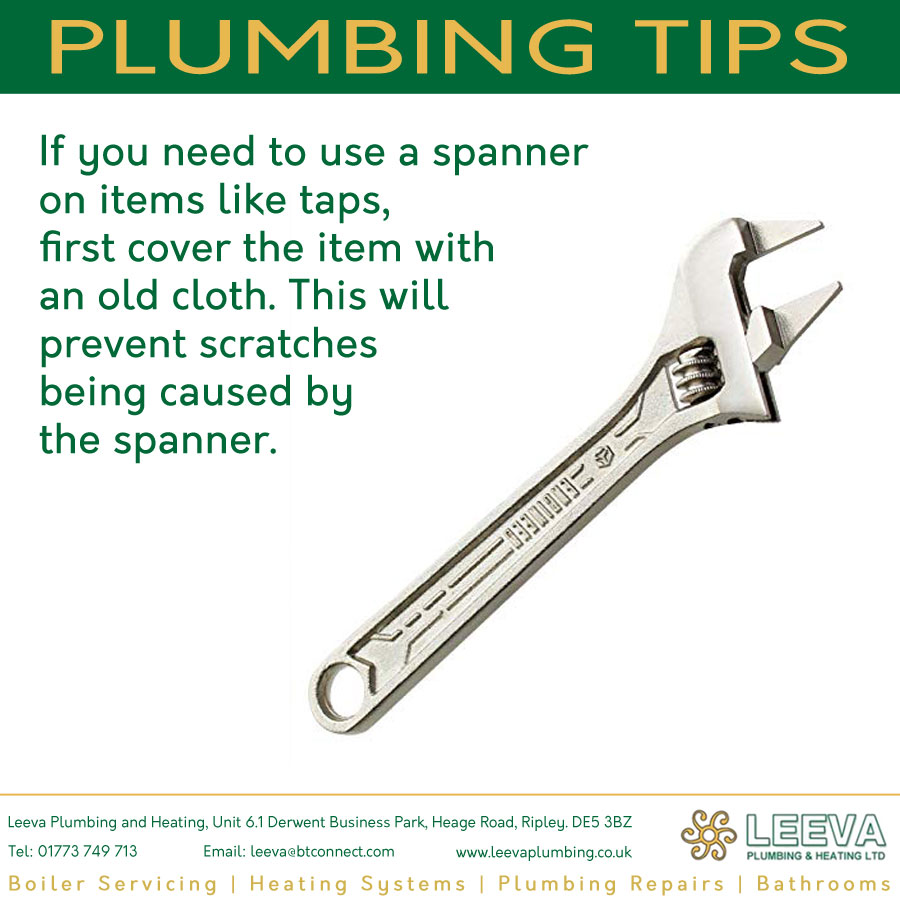
Over tightening supply lines is actually riskier than under tightening. A loose connection that leaks is easy to tighten, but over tightening can damage rubber seals and crack the threaded nuts. So, here's a tip: make the connections at both ends of the line finger tight, then give them another one-eighth to one-quarter turn with pliers.
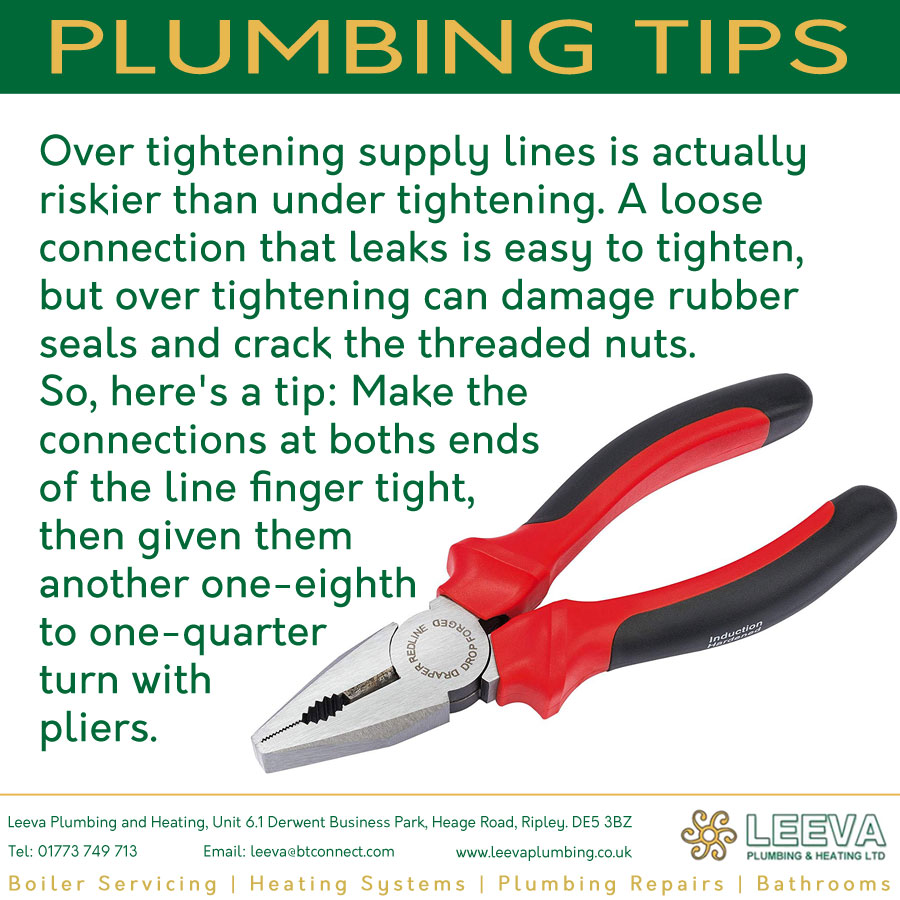
To avoid freezing pipes in the winter make sure any exposed pipework is properly lagged.
Check pipes in attics and cellars as well as those near vents. And don't forget to isolate your outside taps during cold weather.
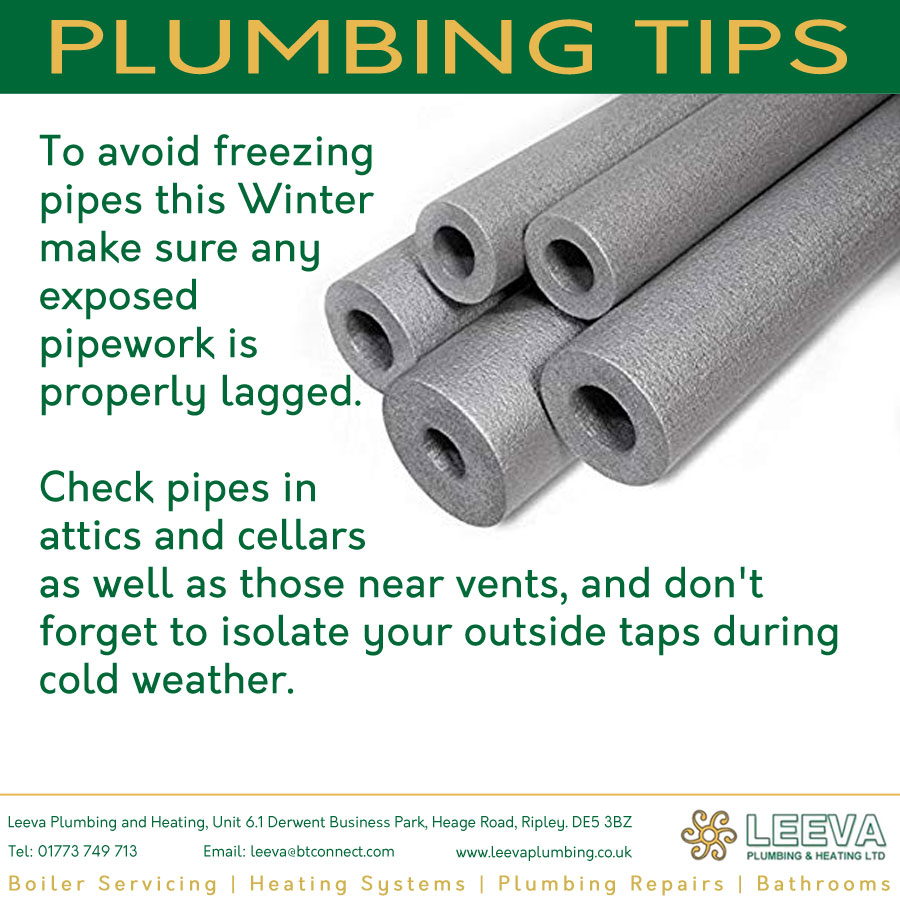
Ensuring your boiler is serviced every year will not only save you money by keeping your boiler running efficiently and avoiding costly breakdowns, but it will keep you and your family safe.
You should only ever have work carried out on your boiler by a registered Gas Safe engineer, like Leeva.

In order to keep waste pipes flowing freely, they should be checked and cleaned regularly.
Outside gullies get easily blocked with leaves etc.
Fit a leaf guard if possible and run a hose to check the flow once a year.
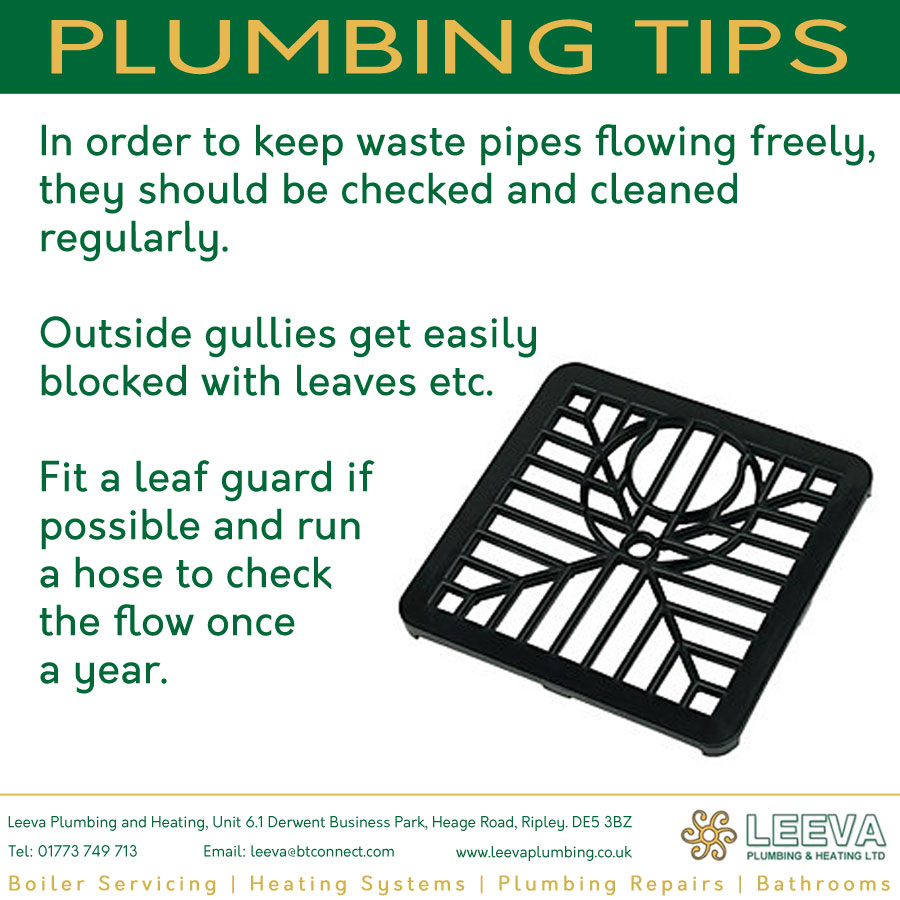
If you live in a hard water area you will be affected by lime scale build up.
Use a suitable lime scale remover regularly to prevent the problem becoming too bad.
Vinegar is a great alternative to expensive cleaners for taps and shower heads. Additives are also available to protect your heating system.
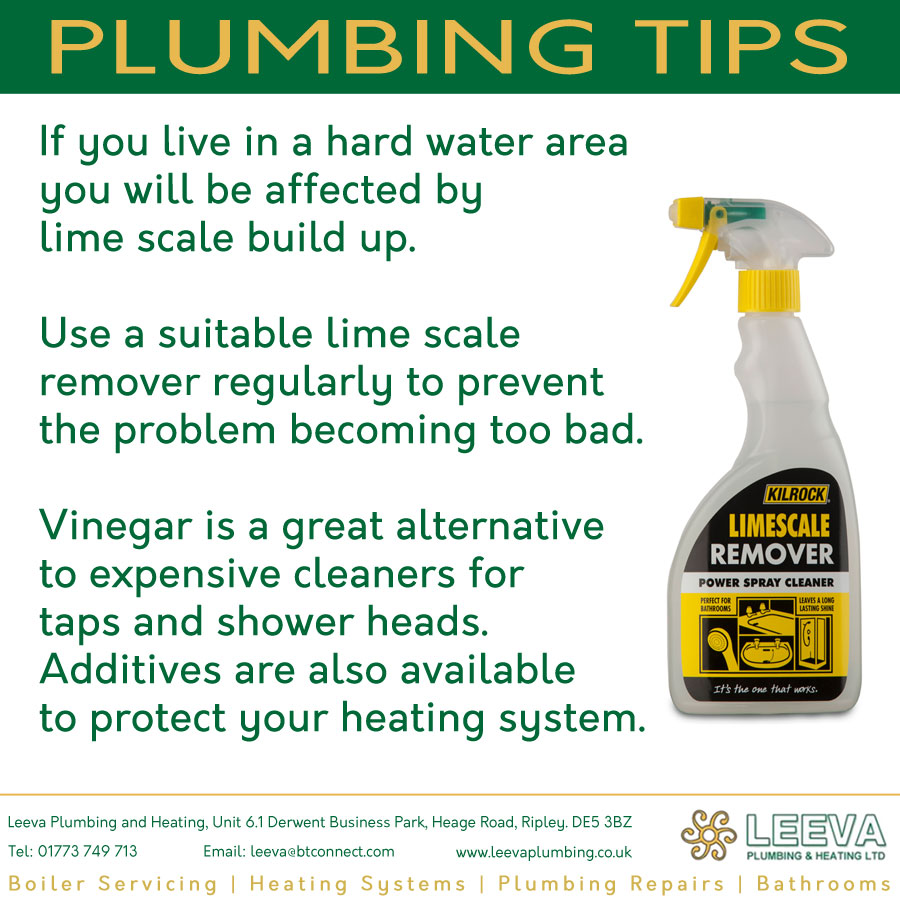
If you can see the flame in the boiler it should be a clear, strong , blue flame - a yellow flame would indicate a problem and should be checked immediately.
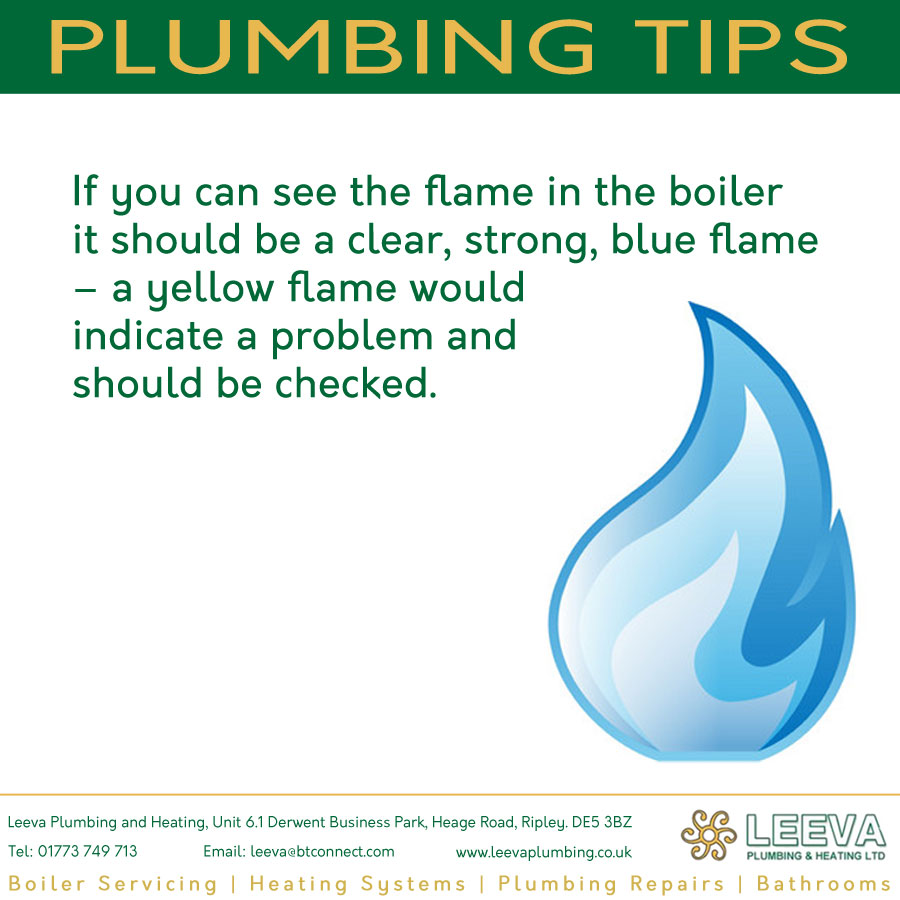
Looking after your boiler...
If you have a pressurised system, check the pressure regularly to ensure it is within the specified range. This is usually around 1 to 1.5 bar, but check the manual for your boiler.
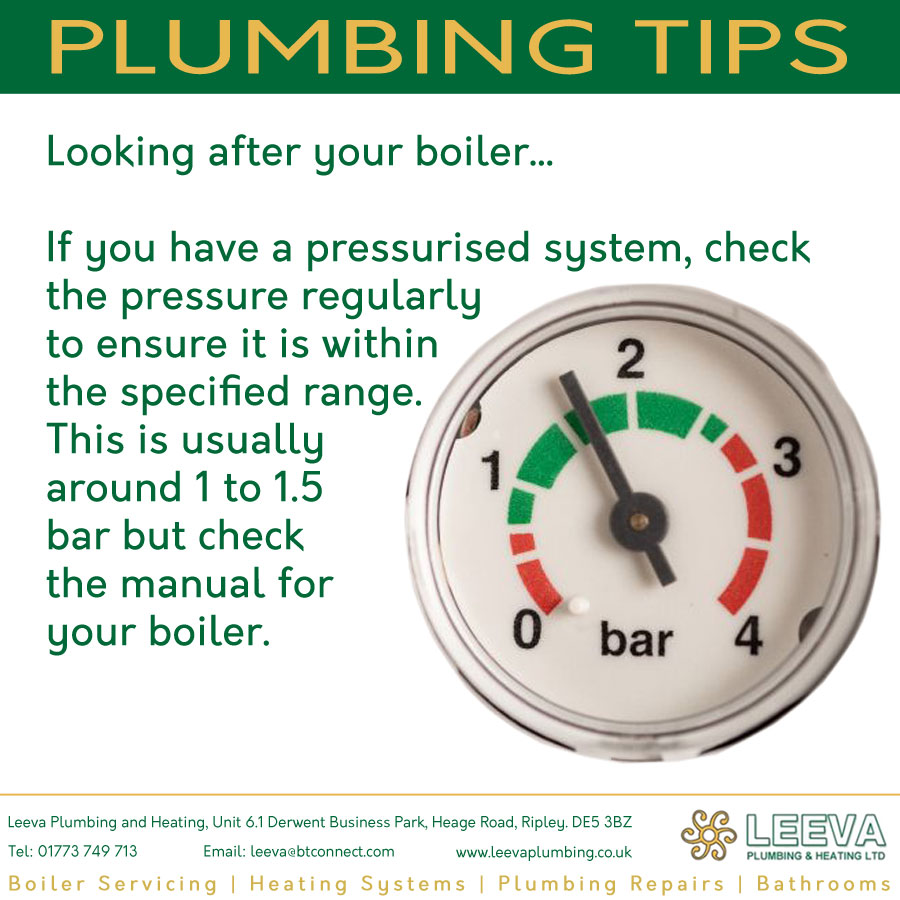
Don't leave a dripping tap or ball valve. It's far better to address the problem early than leave it till it gets worse, e.g. a perished washer on a ball valve in your water storage cistern is only going to fail eventually if you don't replace it and you'll end up with water pouring out of the overflow, or worse.
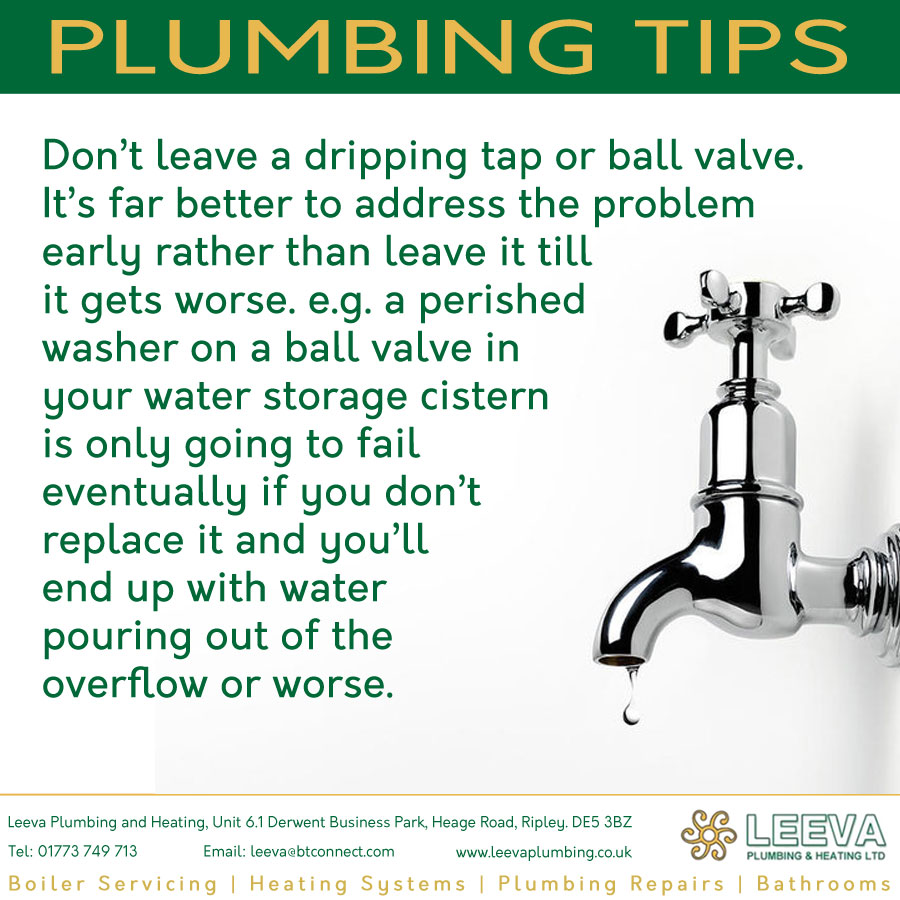
Disconnect any hoses from outdoor taps. Hoses filled with water will freeze in cold weather. If a hose is still connected to the tap, ice can back up into the pipe inside your house, causing the pipe to crack.
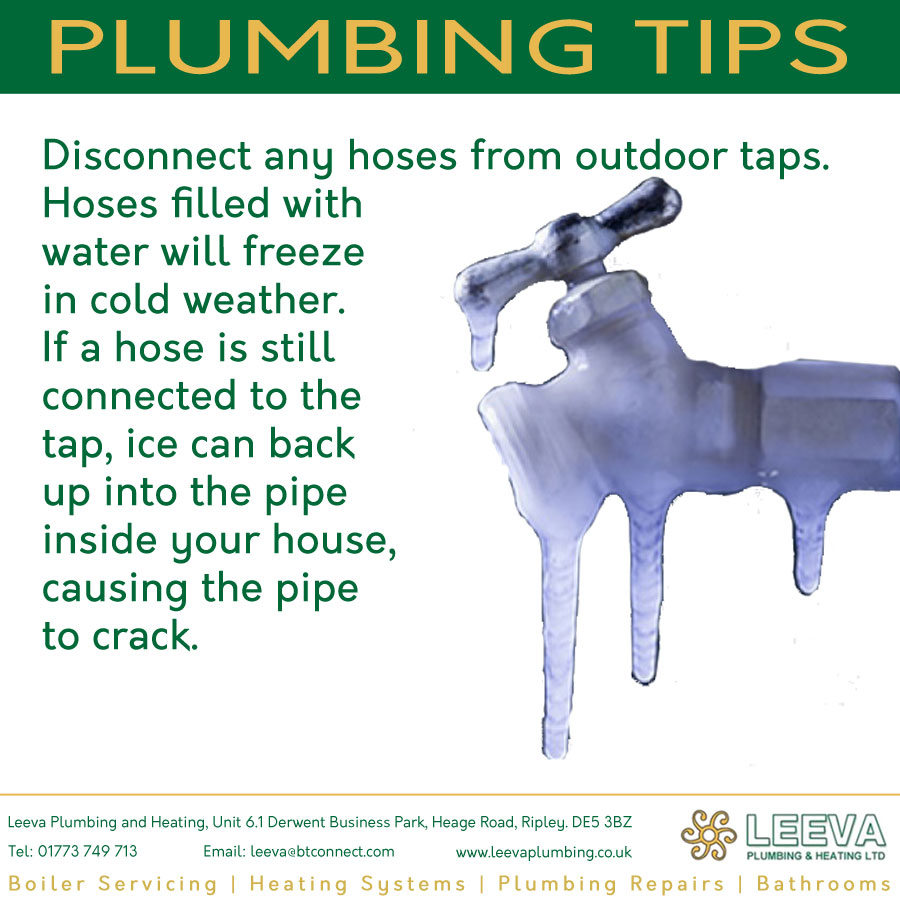
If your washing machine continues running water, even when the basket is completely filled, shut off one or both of the water supply valves on the hoses behind the washer. You should also prevent any electricity from reaching the machine.
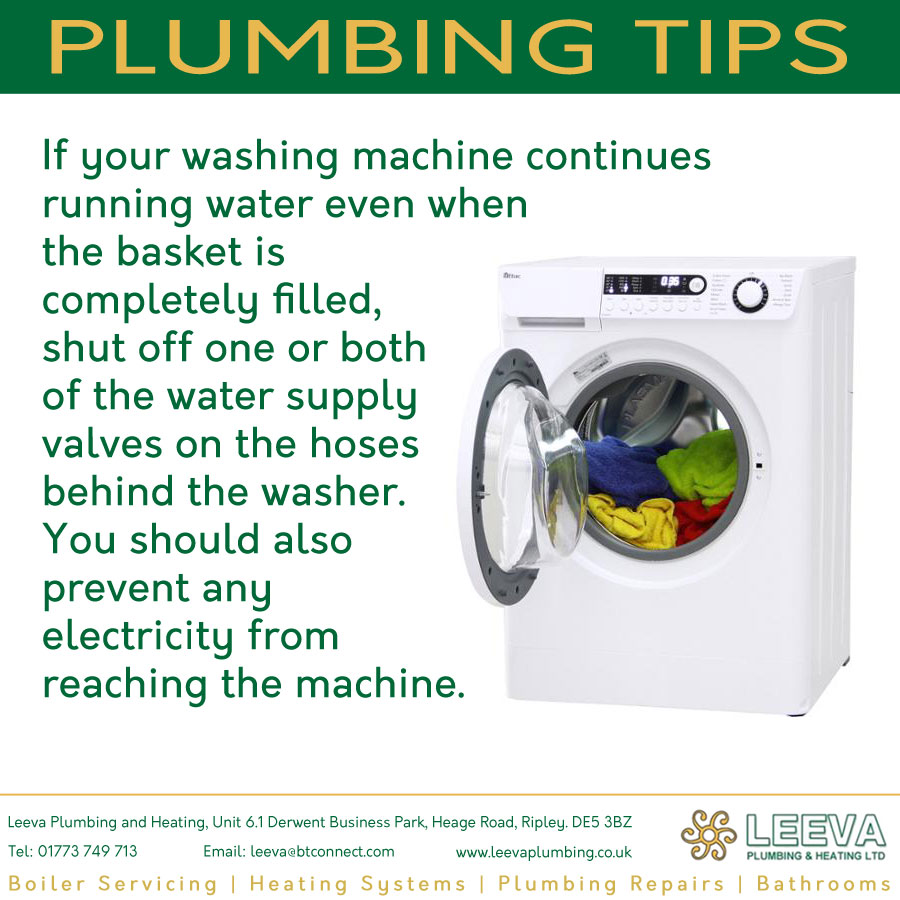
Metal drains under sinks look more reliable than plastic, but plastic is far better. It's cheaper, easier to install and easier to adjust or tighten if a leak develops. And, unlike metal, plastic won't corrode.
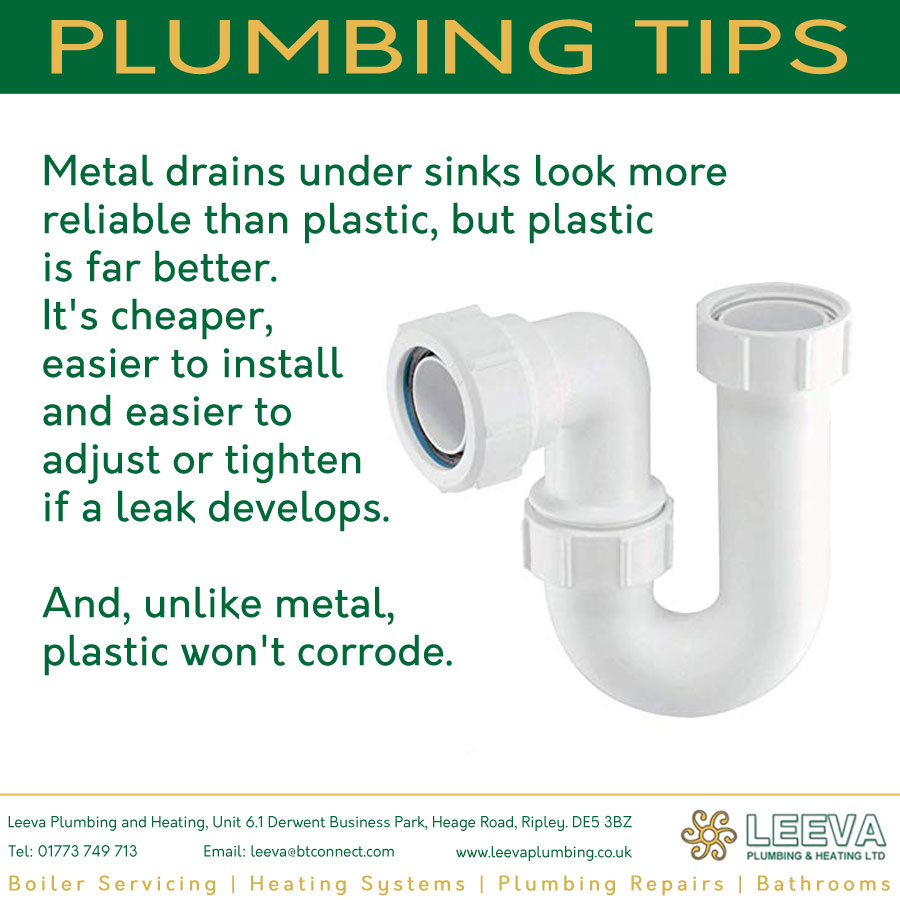
Always turn the water off at the isolation valve when attempting to fix a problem in a specific area of the home. You don't want to be caught unawares by sudden spurts of water from what you're trying to fix.
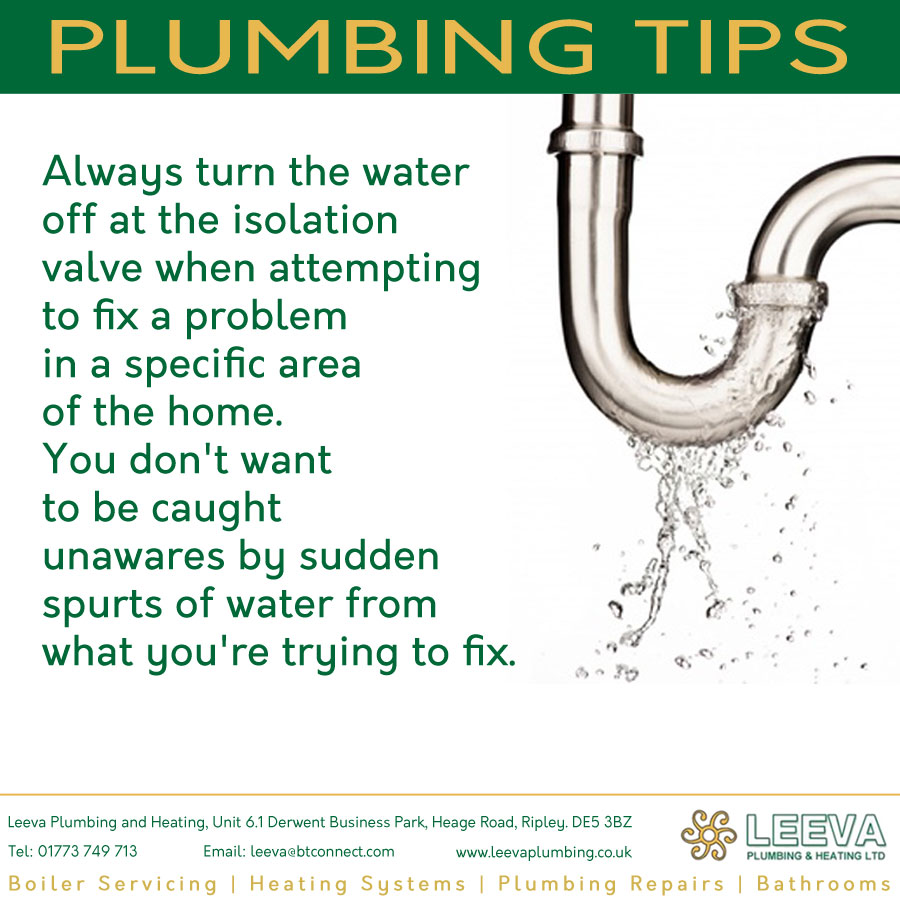
If you need to replace your internal tap mechanism, the access point can usually be found under the temperature indicator (H or C on the top of the tap), depending on the type of tap you have. Just pop this out and you'll see a screw underneath.
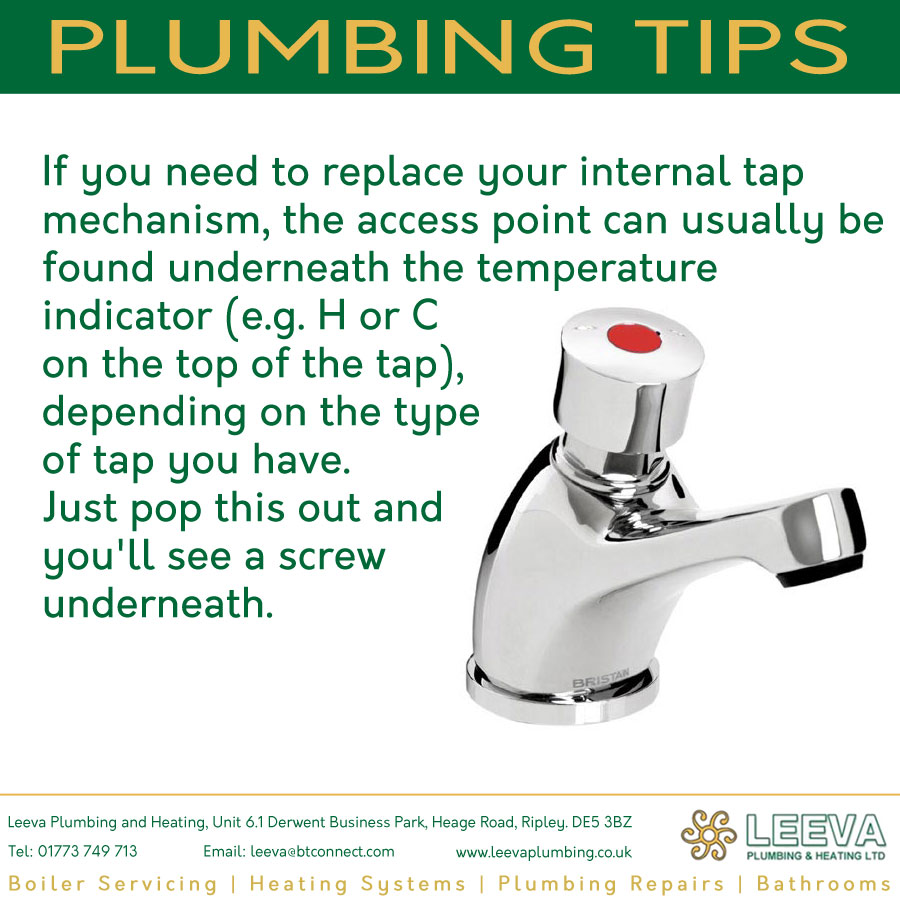
Fit isolation valves when installing new plumbing so that you can easily isolate that part rather than having to close everything off.
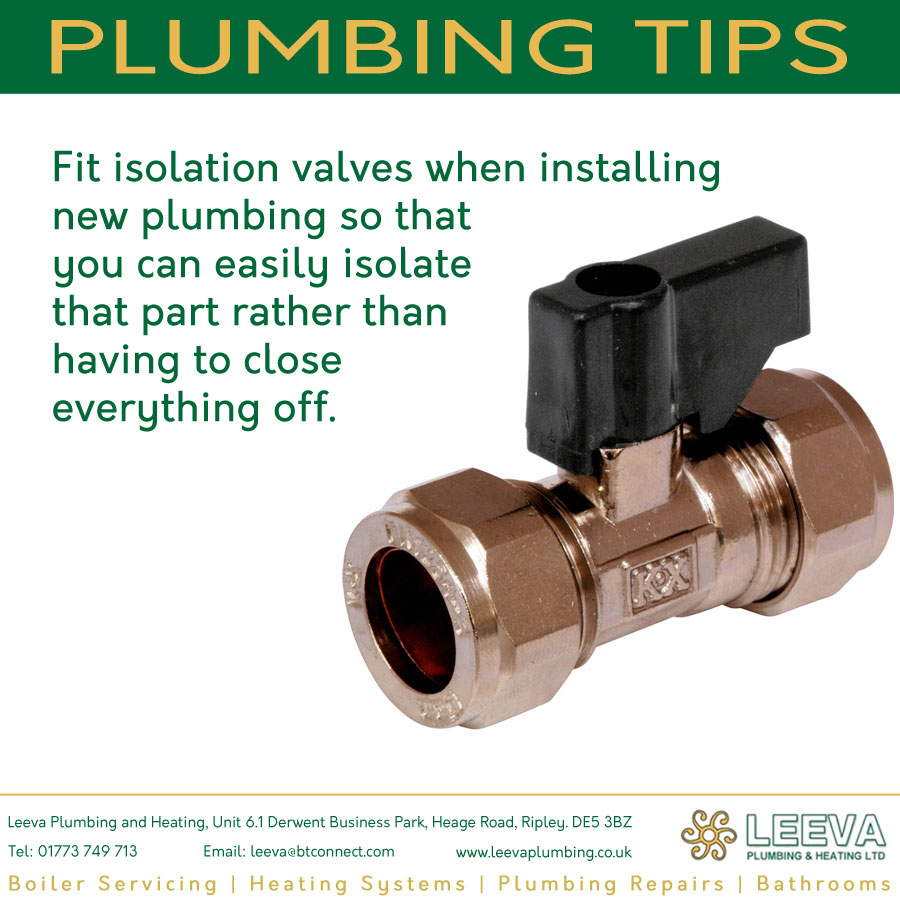
Silicone is a better option than grout for sealing along your bath, as the former is more flexible while the latter is more brittle and hard.
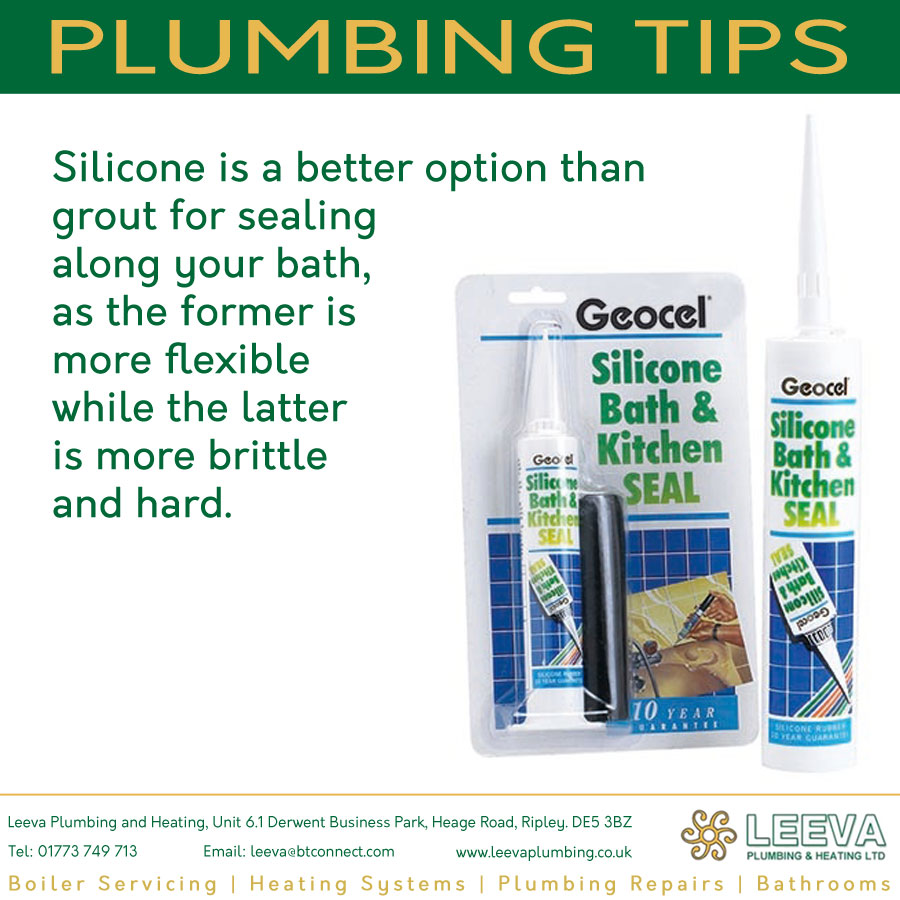
The best way to get rid of mouldy and blackened sealant is to cut it off with a razor blade or Stanley knife, being careful not to damage the bath. Sealant remover fluids are not as effective as they promise.
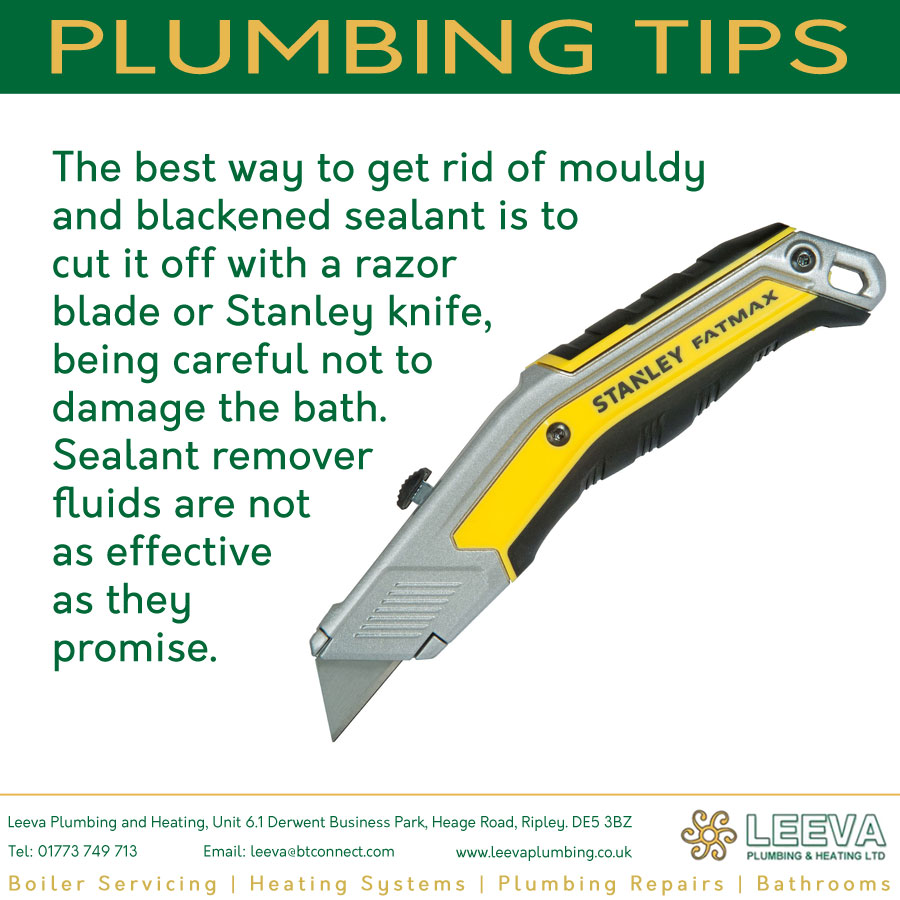
Always make sure your bath is dry before applying new sealant.

When applying sealant to your bath, use a sealant gun. A useful top is to cut the nozzle at a 45 degree angle so application to the corner of the bath is easier.
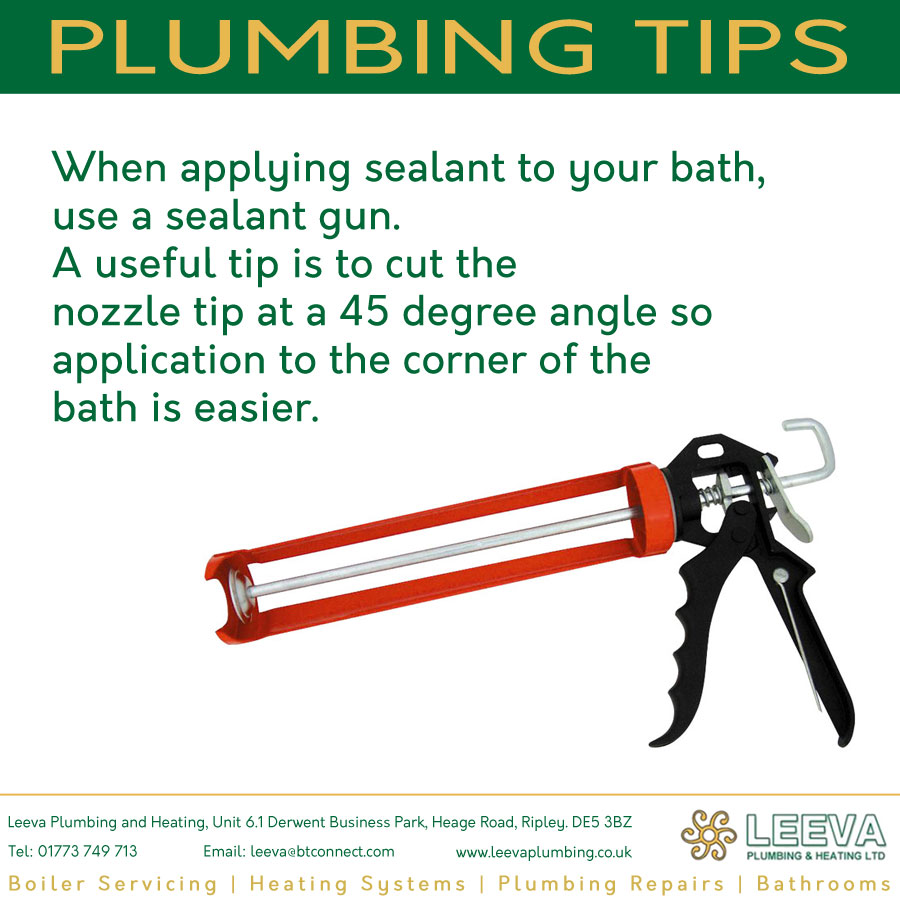
PTFE tape comes in useful when you can't nip to the shop and buy a new washer or 'O' ring. The material is very flexible and seals itself around the tap mechanism, preventing leaks.
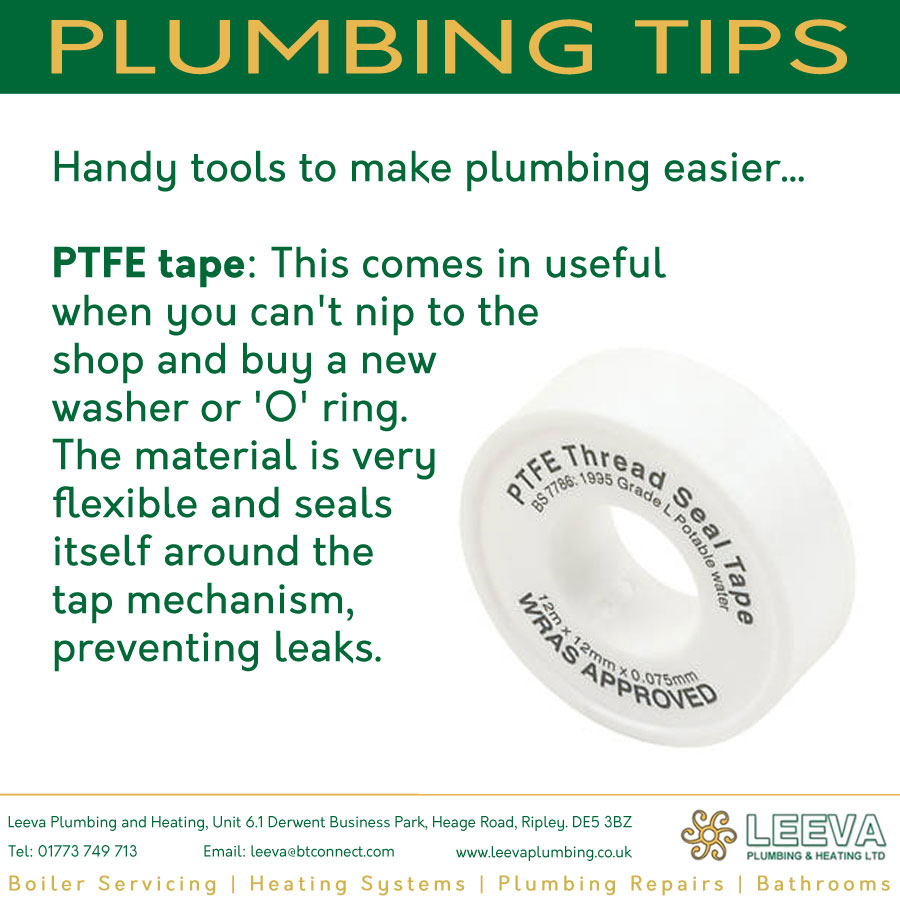
You can use vinegar to dissolve all limescale. If you've noticed a buildup on your shower head just place it in a pot of malt vinegar.
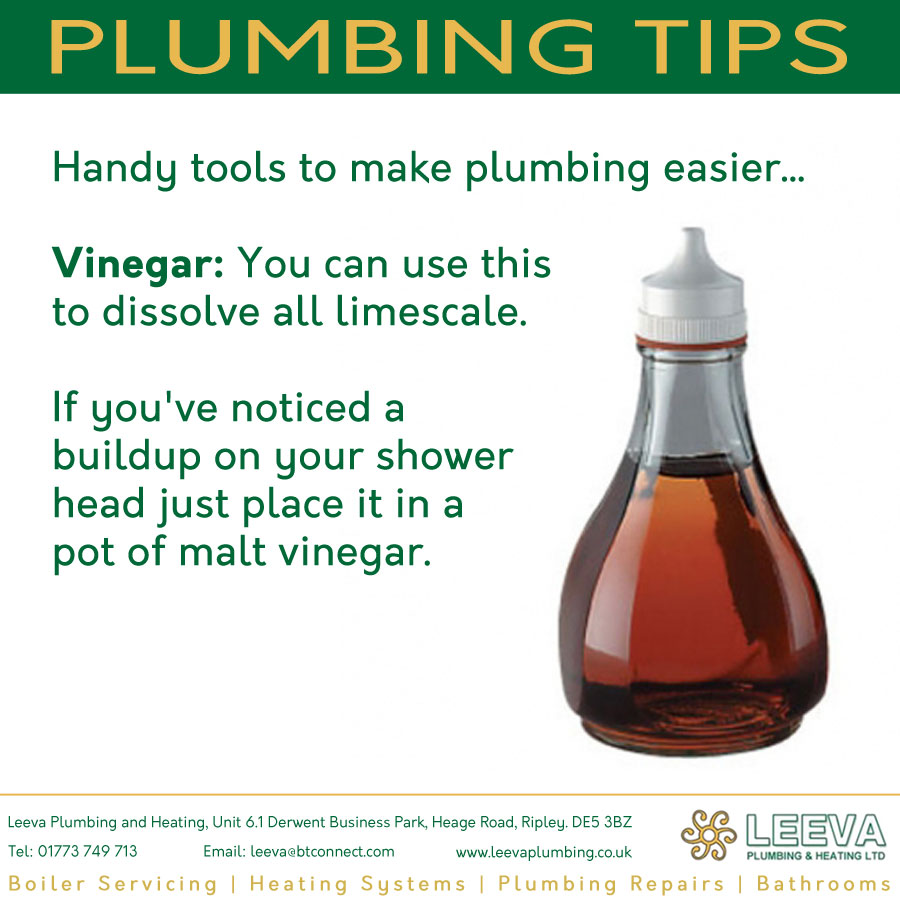
WD-40 is great for loosening up mechanisms and valves.

WANT US TO CALL YOU BACK?
 Click to choose a time & date...
Click to choose a time & date...
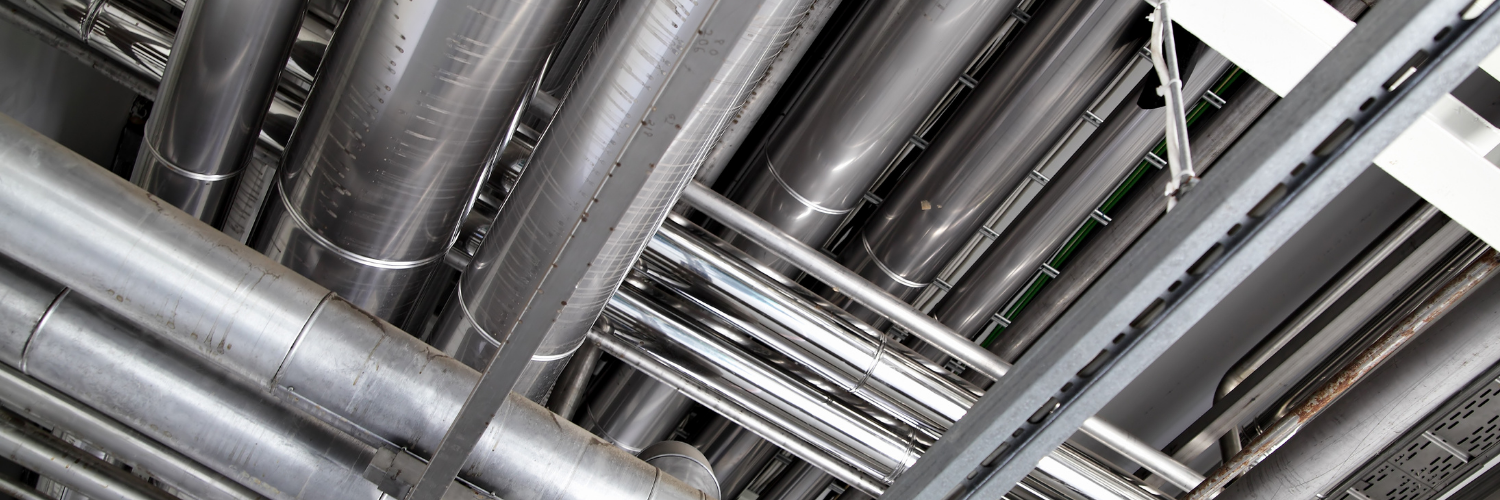
Need a reliable plumber or heating engineer?
Our experienced and helpful team are always happy to help
PHONE
(01773) 749 713
sales@leevaplumbing.co.uk
WEBSITE
www.leevaplumbing.co.uk
ADDRESS
Unit 6.1 Derwent Business Park,
Heage Road,
Ripley
DE5 3BZ

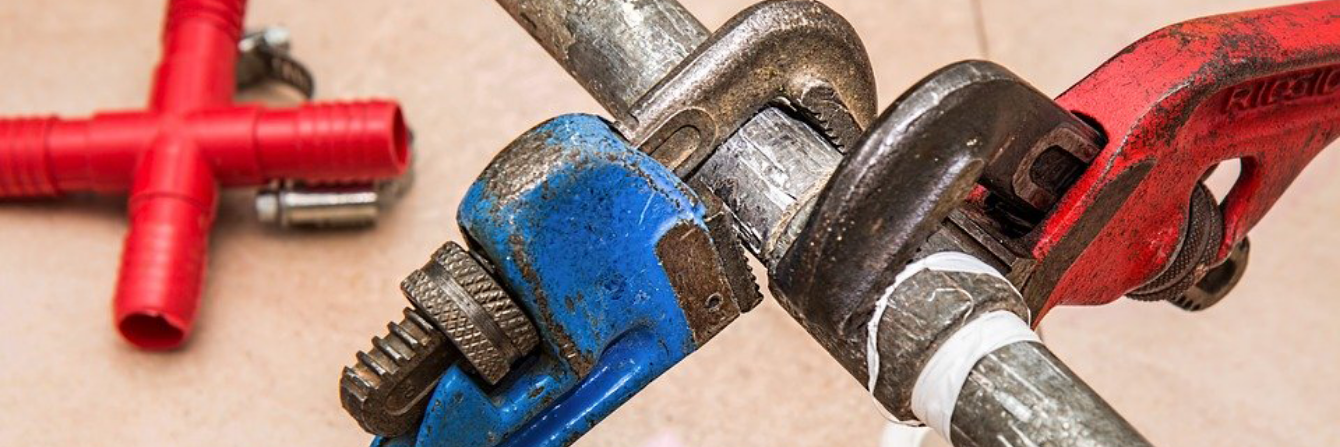

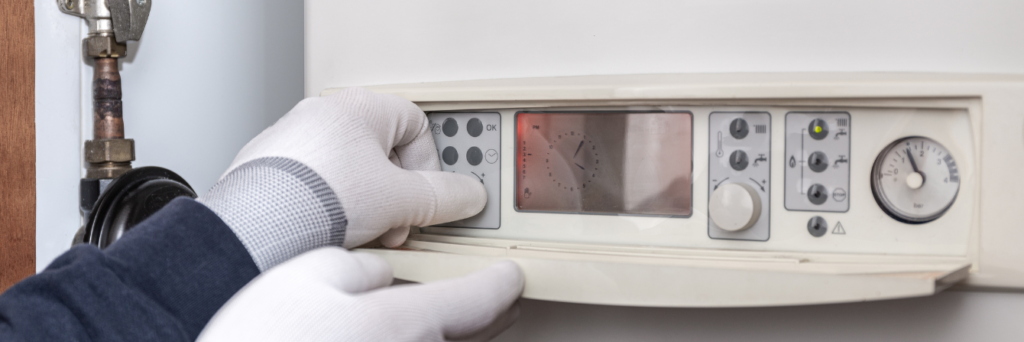
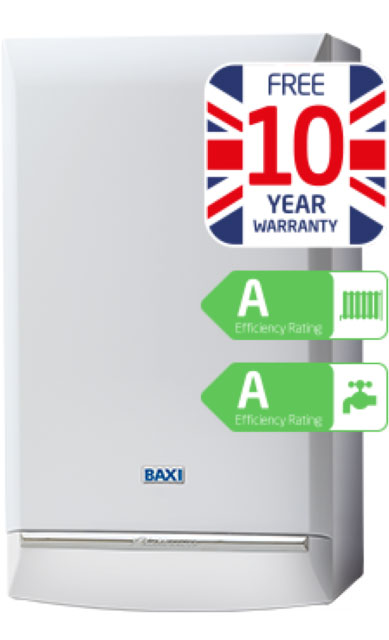 Fully Installed Baxi Boiler
Fully Installed Baxi Boiler